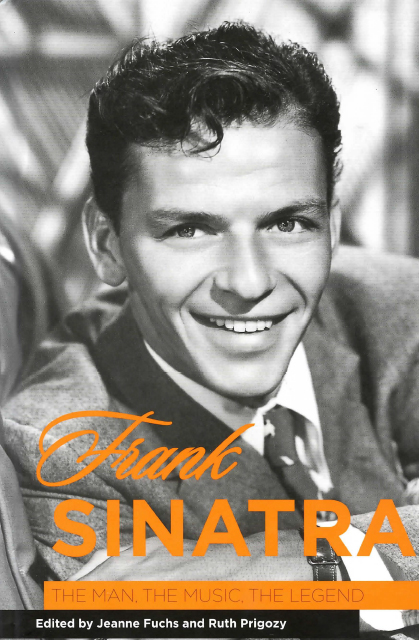2 - Frank Sinatra's Artistry and the Question of Phrasing
Published online by Cambridge University Press: 10 March 2023
Summary
Everyone who listens to Sinatra talks about his phrasing, whether or not they know anything about music.
—Harry Connick, Jr.Of all the frequently cited explanations for Sinatra's supremacy among interpreters of American popular song, none is more commonplace—with musicians, critics, and fans alike—than the quality referred to as his “phrasing.” Yet when pinned down, those who invoke the term are invariably hard-pressed to define, let alone demonstrate, precisely what is meant by a word virtually inseparable from any discussion of Sinatra as a singer. Certainly, matters of breathing, articulation, and rhythmic sense—a musician's unique way of fitting matter to meter—must be considered in the analysis of phrasing. Equally important, though, are questions about the artist's understanding of the relation between composer and interpreter, performer and creator, person and persona. In other words, an interpreter viewed by many as “the master storyteller” must necessarily have a complete if innate grasp of his text and its presentation as well as acting theory. It is a combination of these elements—musical, theatrical, psychological—that constitutes Sinatra's phrasing, the meaning of which can best be understood through close analysis of selective, representative examples from the recordings themselves.
Especially useful as a touchstone to Sinatra's artistry is “Night and Day,” a song which, as Will Friedwald has carefully documented, he performed and revised throughout his career. In fact, six versions recorded between 1942 and 1962—including orchestral arrangements by Stordahl, Riddle, and Costa as well as spare accompaniments by Red Norvo's quintet and Al Viola's solo guitar—provide an index to the defining and developing qualities of Sinatra's phrasing.
The 1942 version, a ballad with scaled-down orchestration by Axel Stordahl, features a fresh and flawless voice executing a style Sinatra himself dubbed as “bel canto.” The sustained vocal lines and uninterrupted stream of breath lend credibility to the singer's claim that studying the breathing techniques of Tommy Dorsey led to a “revelation.” Whereas Fred Astaire, for whom the song was written in 1932, treats the lyric as a series of one- and two-bar units, the four-bar phrase is the basis of Sinatra's interpretation. Moreover, by breathing two bars ahead of the bridge, or C section, in this forty-eight–bar ABABCB song, he fuses these otherwise discrete sections of the song (“I think of you [breath] night and day, day and night …”). The effect is the promotion of an illusion in which obsession by love is nonstop, unpunctuated by the diurnal caesuras separating night from day.
- Type
- Chapter
- Information
- Frank SinatraThe Man, the Music, the Legend, pp. 15 - 20Publisher: Boydell & BrewerPrint publication year: 2007



